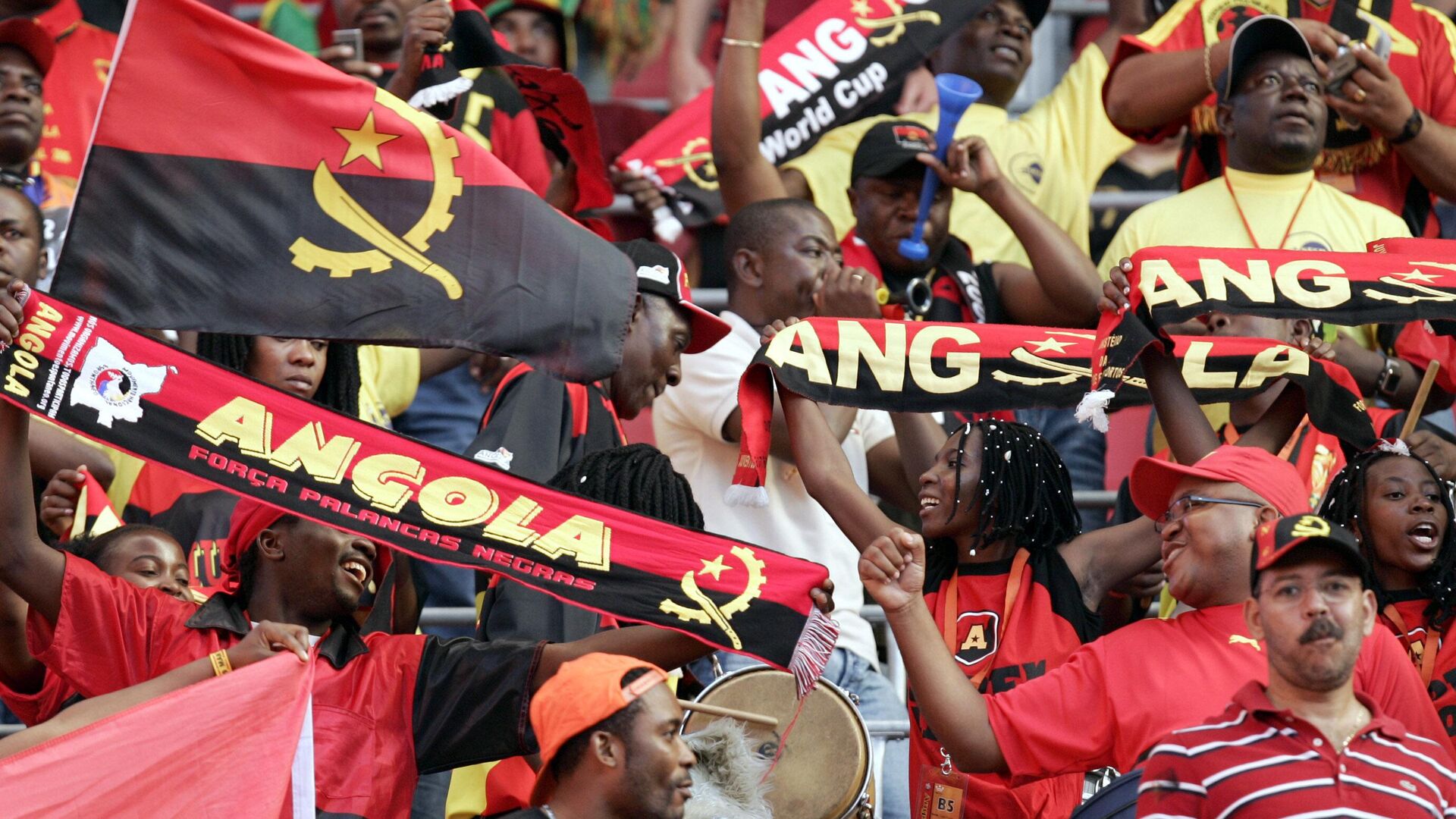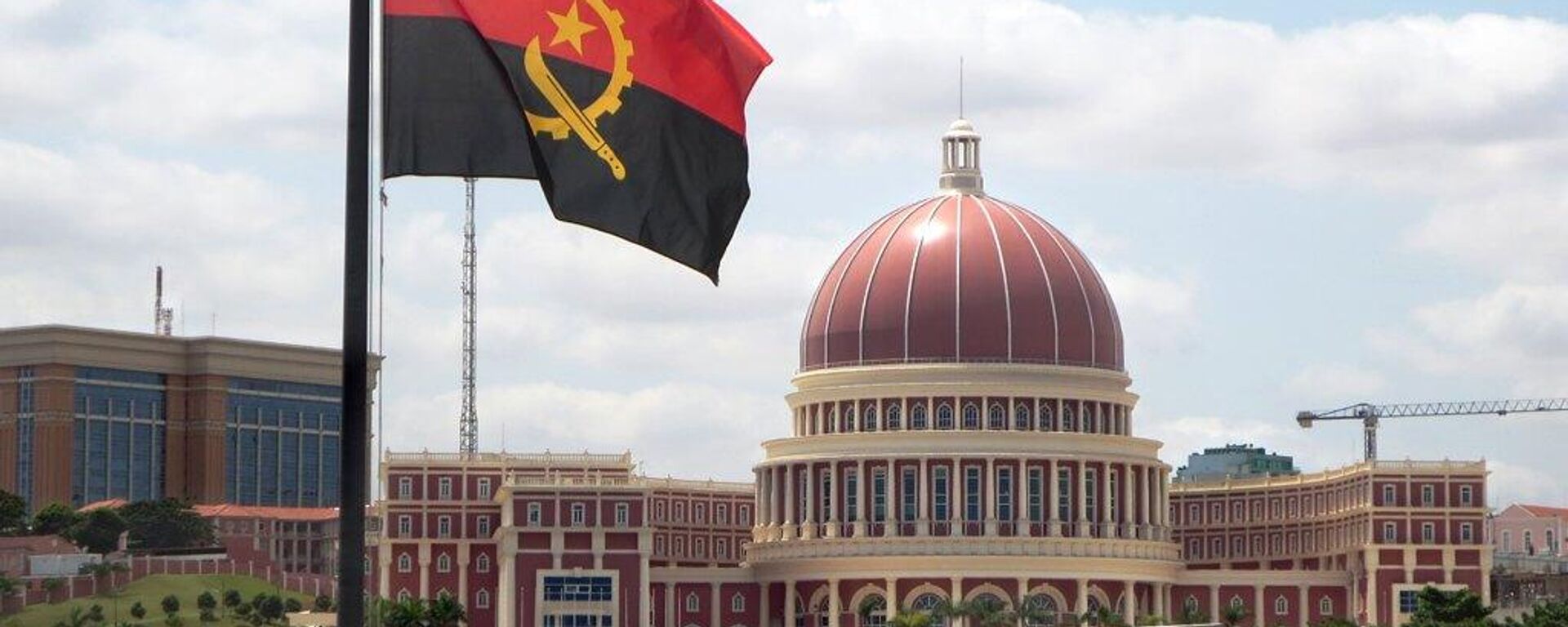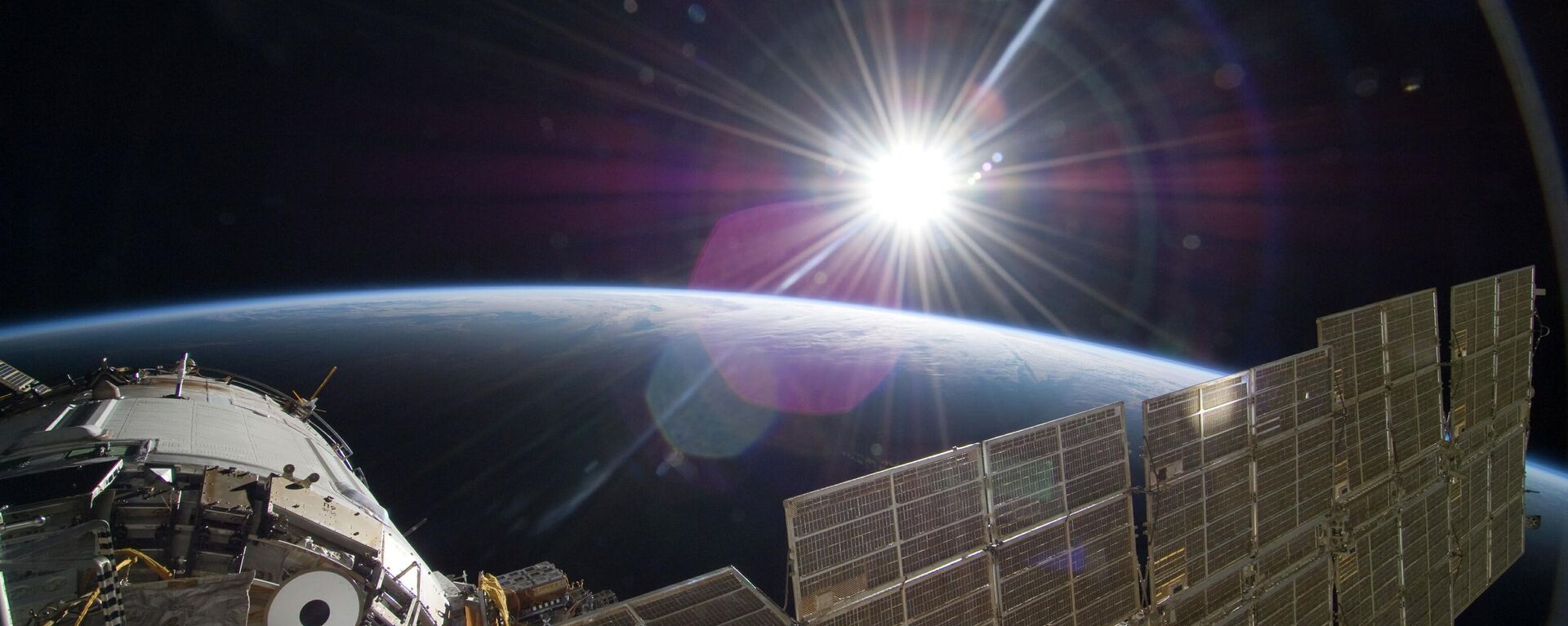https://en.sputniknews.africa/20231111/angolas-independence-day-a-dive-into-history-1063471259.html
Angola's Independence Day: A Dive Into History
Angola's Independence Day: A Dive Into History
Sputnik Africa
Every year on November 11, Angola comes alive with a vibrant celebration of freedom and national pride. This momentous day, known as Angolan Independence Day... 11.11.2023, Sputnik Africa
2023-11-11T11:50+0100
2023-11-11T11:50+0100
2023-11-11T11:50+0100
sub-saharan africa
angola
portugal
colonialism
independence
national holiday
international
war
development
economic growth
https://cdn1.img.sputniknews.africa/img/07e7/0b/0b/1063472021_0:49:2760:1602_1920x0_80_0_0_37c0c1d9b16977ebb8c02803794fd5b2.jpg
Angola's journey to independence was far from smooth. It is a story of resilience, struggle and eventual triumph. The origins of the West African nation's struggle for independence can be traced back to the late 15th century, when Portuguese explorers first set foot on Angolan soil in 1483.Motivated by the lure of abundant natural resources and strategic trade routes, the Portuguese established a colonial regime that lasted more than 400 years in Angola. This period was marked by the exploitation of the country's resources and people, leading to widespread discontent and resistance among the Angolan population.Spark of Resistance: Angolan War of IndependenceThe simmering tensions finally erupted in 1961, igniting the Angolan War of Independence. This was a long and complicated conflict involving various nationalist movements, each with its own vision for an independent Angola.The Popular Movement for the Liberation of Angola (MPLA), the National Front for the Liberation of Angola (FNLA), and the National Union for the Total Independence of Angola (UNITA) were the main players in this struggle.Despite facing a well-equipped colonial army, these movements waged a determined guerrilla war that gradually weakened Portuguese control over the country. The war was characterized by intense fighting, political maneuvering, and international involvement due to Angola's strategic importance during the Cold War.The turning point in this struggle came not from within Angola, but from within Portugal itself. In 1974, the Carnation Revolution, a peaceful coup led by leftist military officers, overthrew Portugal's authoritarian Estado Novo regime.Recognizing the untenability of maintaining colonial rule in the face of growing resistance and international condemnation, the new government entered into negotiations with Angolan independence movements, ending 13 years of fighting.Dawn of New Era: Independence and BeyondOn November 11, 1975, Agostinho Neto of the MPLA declared the independence of the People's Republic of Angola. However, this significant occasion did not mark the end of the hard times. The country descended into a civil war that lasted until 2002, serving as a stark reminder of the challenges that often accompany the transition from colonial rule to self-government.Today, Angola is a nation on the rise. With a gross domestic product (GDP) of $74 billion (expected to reach $109.38 billion by the end of 2023) and a population of 33 million, it is the sixth-largest economy in sub-Saharan Africa. The country's economy is primarily driven by the oil sector, which accounts for approximately 50% of GDP, more than 70% of government revenues, and more than 90% of exports.Angola is the second-largest oil producer in sub-Saharan Africa, producing approximately 1.55 million barrels per day, and also has significant proven gas reserves. Despite the volatility of global oil prices, Angola has managed to maintain steady economic growth. In 2022, the economy expanded by 3.0%, up from 1.1% in 2021, according to the African Development Bank (AfDB).In addition to its oil and gas resources, Angola is blessed with extensive mineral resources, including significant deposits of diamonds, iron ore, phosphates, copper, gold, and manganese. The mining industry in Angola has tremendous economic potential given the country's diversified mining resources, making it one of Africa's largest diamond producers. Remarkably, only 40% of the country's diamond-rich territory has been explored.Moreover, Angola has invested strategically to become an alternative hub for the southern and central region of Africa building datacenters, satellite construction, and optic fibers projects to connect the country internally, to the continent and the world. These developments are poised to boost exports, diversify the national economy, and generate local value and employment opportunities.
https://en.sputniknews.africa/20230917/angolas-national-heroes-day-first-president-a-cultural-symbol-for-all-generations-1062169273.html
https://en.sputniknews.africa/20230914/here-are-african-countries-with-their-own-satellites-in-orbit-1062105968.html
angola
portugal
Sputnik Africa
feedback@sputniknews.com
+74956456601
MIA „Rossiya Segodnya“
2023
Muhammad Nooh Osman
https://cdn1.img.sputniknews.africa/img/07e7/04/0a/1058467512_0:0:1280:1280_100x100_80_0_0_ec723833bcbfcaed2e21952965ad99e4.jpg
Muhammad Nooh Osman
https://cdn1.img.sputniknews.africa/img/07e7/04/0a/1058467512_0:0:1280:1280_100x100_80_0_0_ec723833bcbfcaed2e21952965ad99e4.jpg
News
en_EN
Sputnik Africa
feedback@sputniknews.com
+74956456601
MIA „Rossiya Segodnya“
Sputnik Africa
feedback@sputniknews.com
+74956456601
MIA „Rossiya Segodnya“
Muhammad Nooh Osman
https://cdn1.img.sputniknews.africa/img/07e7/04/0a/1058467512_0:0:1280:1280_100x100_80_0_0_ec723833bcbfcaed2e21952965ad99e4.jpg
angola, portugal, colonialism, independence, national holiday, international, war, development, economic growth
angola, portugal, colonialism, independence, national holiday, international, war, development, economic growth
Angola's Independence Day: A Dive Into History
Muhammad Nooh Osman
Writer/Editor
Every year on November 11, Angola comes alive with a vibrant celebration of freedom and national pride. This momentous day, known as Angolan Independence Day, commemorates the end of more than four centuries of Portuguese colonial rule and marks the birth of an independent Angola.
Angola's journey to independence was far from smooth. It is a story of resilience, struggle and eventual triumph. The origins of the West African nation's struggle for independence can be traced back to the late 15th century, when Portuguese explorers first set foot on Angolan soil in 1483.
Motivated by the lure of abundant natural resources and strategic trade routes, the Portuguese established a colonial regime that lasted more than 400 years in
Angola. This period was marked by the exploitation of the country's resources and people, leading to widespread discontent and resistance among the Angolan population.
Spark of Resistance: Angolan War of Independence
The simmering tensions finally erupted in 1961, igniting the Angolan War of Independence. This was a long and complicated conflict involving various nationalist movements, each with its own vision for an independent Angola.
The Popular Movement for the Liberation of Angola (MPLA), the National Front for the Liberation of Angola (FNLA), and the National Union for the Total Independence of Angola (UNITA) were the
main players in this struggle.
Despite facing a well-equipped colonial army, these movements waged a determined guerrilla war that gradually weakened Portuguese control over the country. The war was characterized by intense fighting, political maneuvering, and international involvement due to Angola's strategic importance during the Cold War.
The turning point in this struggle came not from within Angola, but from within Portugal itself. In 1974, the Carnation Revolution, a peaceful coup led by leftist military officers, overthrew Portugal's authoritarian Estado Novo regime.
Recognizing the untenability of maintaining colonial rule in the face of growing resistance and international condemnation, the new government entered into negotiations with Angolan independence movements, ending 13 years of fighting.
Dawn of New Era: Independence and Beyond
On November 11, 1975, Agostinho Neto of the MPLA declared the independence of the People's Republic of Angola. However, this
significant occasion did not mark the end of the hard times. The country descended into a civil war that lasted until 2002, serving as a stark reminder of the challenges that often accompany the transition from colonial rule to self-government.
Today, Angola is a nation on the rise. With a gross domestic product (GDP) of $74 billion (expected to reach $109.38 billion by the end of 2023) and a population of 33 million, it is the sixth-largest economy in sub-Saharan Africa. The country's economy is primarily driven by the oil sector, which accounts for approximately 50% of GDP, more than 70% of government revenues, and more than 90% of exports.
Angola is the
second-largest oil producer in sub-Saharan Africa, producing approximately 1.55 million barrels per day, and also has significant proven gas reserves. Despite the volatility of global oil prices, Angola has managed to maintain steady
economic growth. In 2022, the economy expanded by 3.0%, up from 1.1% in 2021, according to the African Development Bank (AfDB).
In addition to its oil and gas resources, Angola is blessed with extensive mineral resources, including significant deposits of diamonds, iron ore, phosphates, copper, gold, and manganese. The mining industry in Angola has tremendous economic potential given the country's diversified mining resources, making it one of
Africa's largest diamond producers. Remarkably, only 40% of the country's diamond-rich territory has been explored.
Moreover, Angola has invested strategically to become an alternative hub for the southern and central region of Africa building datacenters, satellite construction, and optic fibers projects to connect the country internally, to the continent and the world. These developments are poised to boost exports, diversify the national economy, and generate local value and employment opportunities.




